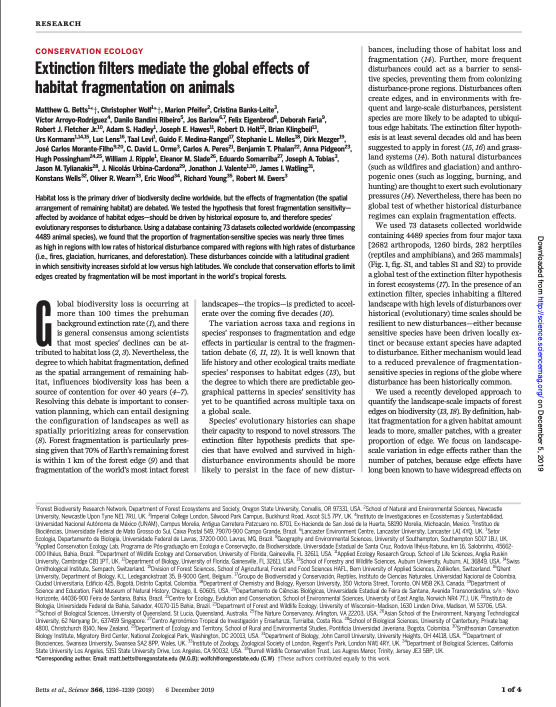
Extinction filters mediate the global effects of habitat fragmentation on animals
Science, 366 (6470), pp. 1236-1239
Resumen
Habitat loss is the primary driver of biodiversity decline worldwide, but the effects of fragmentation (the spatial arrangement of remaining habitat) are debated. We tested the hypothesis that forest fragmentation sensitivity-affected by avoidance of habitat edges-should be driven by historical exposure to, and therefore species' evolutionary responses to disturbance. Using a database containing 73 datasets collected worldwide (encompassing 4489 animal species), we found that the proportion of fragmentation-sensitive species was nearly three times as high in regions with low rates of historical disturbance compared with regions with high rates of disturbance (i.e., fires, glaciation, hurricanes, and deforestation). These disturbances coincide with a latitudinal gradient in which sensitivity increases sixfold at low versus high latitudes. We conclude that conservation efforts to limit edges created by fragmentation will be most important in the world's tropical forests.

